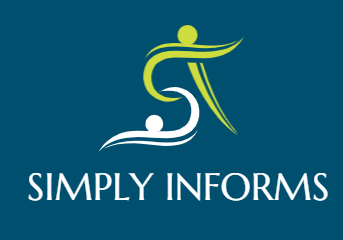Navigating Health Insurance Provision in the USA: A Comprehensive Guide
Introduction Navigating Health Insurance Provision in the USA: A Comprehensive Guide:
Health insurance provision in the United States is a complex and multifaceted system that plays a crucial role in ensuring access to healthcare services for millions of Americans. With various options, regulations, and considerations to navigate, understanding the landscape of health insurance is essential for individuals and families seeking coverage. In this article, we'll explore the intricacies of health insurance provision in the USA, shedding light on key aspects, options, and considerations for consumers.
1. Understanding the Basics of Health Insurance:
- Health insurance is a contract between individuals and insurance companies that provides coverage for medical expenses, including doctor visits, hospitalization, prescription drugs, and preventive care.
- Policies may vary in terms of coverage levels, cost-sharing arrangements (such as deductibles, copayments, and coinsurance), and provider networks.
- It's essential to understand key insurance terminology, such as premiums, deductibles, copayments, coinsurance, and out-of-pocket maximums, to make informed decisions about coverage options.
2. Employer-Sponsored Health Insurance:
- Employer-sponsored health insurance is the most common form of coverage in the United States, typically offered as part of employee benefits packages.
- Employers may offer a range of health plans, including preferred provider organizations (PPOs), health maintenance organizations (HMOs), and high-deductible health plans (HDHPs), with varying levels of coverage and cost-sharing.
- Employees often share the cost of premiums with their employers, and contributions are typically deducted from their paychecks on a pre-tax basis.
3. Individual Health Insurance Market:
- Individuals who don't have access to employer-sponsored coverage or Medicare may purchase health insurance plans directly from insurance companies or through the Health Insurance Marketplace (also known as the Exchange).
- The Health Insurance Marketplace offers a range of private insurance plans, with subsidies available to eligible individuals and families based on income level.
- Shopping for individual health insurance requires careful consideration of factors such as coverage needs, network adequacy, premiums, deductibles, and available subsidies.
4. Government-Sponsored Health Insurance Programs:
- The United States government administers several health insurance programs to provide coverage to vulnerable populations, including Medicaid for low-income individuals and families, and Medicare for seniors and certain disabled individuals.
- Medicaid eligibility and benefits vary by state, with expansion under the Affordable Care Act (ACA) extending coverage to millions of previously uninsured individuals.
- Medicare consists of different parts (A, B, C, and D) that cover hospital insurance, medical insurance, and prescription drug coverage, offering comprehensive healthcare benefits for eligible enrollees.
5. Considerations for Choosing Health Insurance:
When selecting a health insurance plan, it's essential to consider factors such as coverage options, network size, premiums, out-of-pocket costs, prescription drug coverage, and access to preferred providers and specialists.
Individuals with chronic health conditions or specific healthcare needs should carefully review plan benefits and formularies to ensure coverage for necessary treatments and medications.
Comparing multiple plans, seeking assistance from insurance brokers or navigators, and utilizing online resources can help consumers make informed decisions about their health insurance coverage.
Conclusion Navigating Health Insurance Provision in the USA: A Comprehensive Guide
Navigating the landscape of health insurance provision in the USA requires careful consideration of various factors, options, and considerations. Whether through employer-sponsored coverage, individual market plans, or government-sponsored programs, access to affordable and comprehensive health insurance is essential for safeguarding health and financial well-being. By understanding the basics of health insurance, exploring available options, and weighing key considerations, individuals and families can make informed choices to secure the coverage they need in today's healthcare environment.








.jpg)






0 Comments